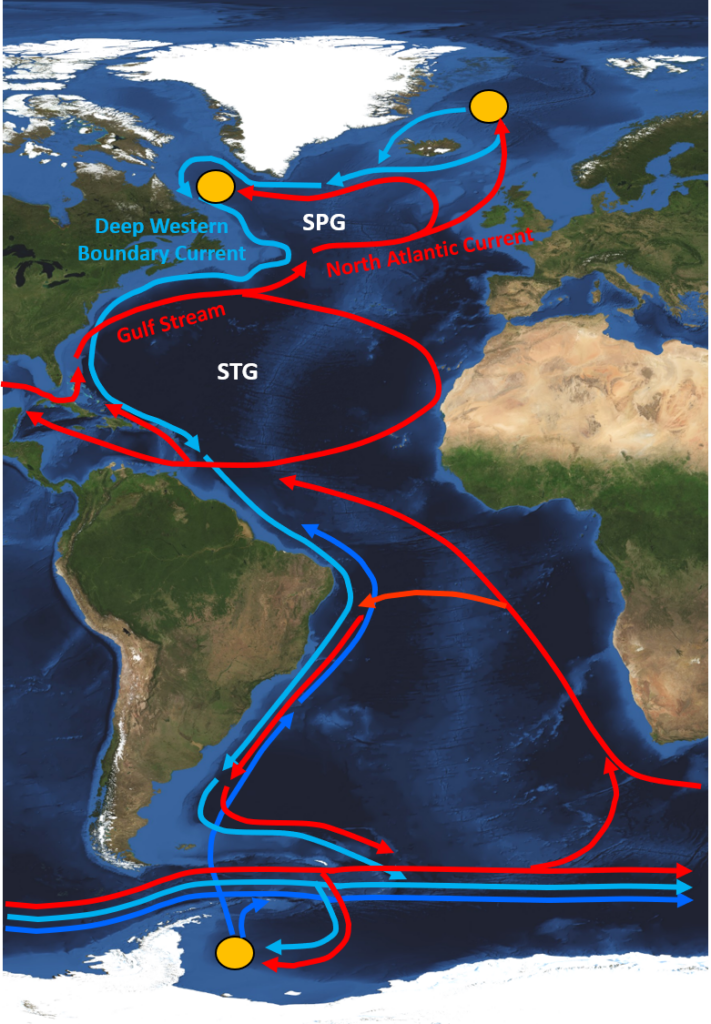EPOC: Concept and objectives
Ocean circulation – the movement of water masses around the ocean basin – is the engine of earth’s climate system. It is responsible for the storage and distribution of heat around the ocean, as well as nutrients, oxygen and carbon. In the Atlantic, strong overturning circulation is driven by warm surface water in equatorial regions being drawn towards the poles where it cools and becomes more saline, sinks and then returns towards the equator. This is known as the Atlantic Meridional Overturning Circulation (AMOC).

EPOC will generate a new conceptual framework for the Atlantic meridional overturning circulation (AMOC), to understand how it functions in the Earth system, and how it impacts weather and climate. The AMOC is a key component of the climate system, responsible for ocean heat and freshwater transport, associated with the ventilation of anthropogenic carbon, and anticipated to experience or drive climate tipping points. However, the link between ocean transport, ventilation and tipping points relies on the common conceptual view of the AMOC as a ‘great ocean conveyor’ which was developed to explain very long timescale (glacial-interglacial) fluctuations in climate. The conveyor belt schematic conflates millennial timescales with human timescales (days to 100 years), leading to misconceptions by the observing and modelling communities, and misplaced expectations about the AMOC’s role in climate.
EPOC will capitalise on new understanding about the AMOC variability and coherence from two decades of AMOC observations and advances in ocean observing technology and climate modelling in order to develop new tools and approaches to quantify and explain past AMOC change and how its connectivity (or lack thereof) imprint on the Earth system. Through joined-up observational and model experiments, focussing on next generation high resolution coupled models, machine learning techniques and critical re-assessment of paleo proxies, EPOC will generate a new conceptual framework for the AMOC, its meridional connectivity, feedbacks and the relationship between ventilation and overturning on human timescales. This will lead to better predictions of the AMOC and related climate evolution, including the risk of rapid change.
